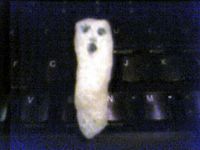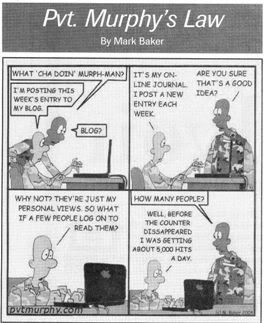Some semblance of justice...
As I have written about him before, a while back, Ward Churchill is finally paying some dues for his asinine rhetoric and questionable practices as the Head of Native American Studies at Colorado University. After putting him on suspension, they finally decided to fire him from their faculty. But, of course, he is defiant until the very end.
CU regents fire Ward Churchill
By Berny Morson, Rocky Mountain News
July 24, 2007
BOULDER — The first, very long chapter of the Ward Churchill saga ended this afternoon as just about everybody — including Churchill — had predicted: He was fired from his job as ethnic studies professor at the University of Colorado.
The next chapter is set to begin Wednesday, when the controversial academic and his civil rights attorney, David Lane, sue the university in Denver District Court.
Churchill warned that his dismissal is the beginning of a wider attack on scholars with unpopular political views. "If you think I’m the endgame, you’re wrong," Churchill told supporters. "This is the kickoff." He raised his fist and smiled defiantly when the school’s board of regents voted 8-1 in public, following three hours of private discussions, to fire him.
The ruling was greeted with boos and the beating of drums by about 100 supporters — including American Indian Movement leader Russell Means — standing in the back of the meeting room. But no violence erupted, a contingency for which police were clearly prepared. Some 40 officers from three agencies were standing by after a death threat was e-mailed to the regents three weeks ago.
Churchill, 59, said he would remain visible at CU while waging his court fight. "I am going nowhere," he said. "It’s not about breaking. It’s not about bending. It’s not about compromising. When you negotiate your rights, you haven’t got any."
CU President Hank Brown had earlier recommended the dismissal. In the end, there really wasn’t much choice, Brown said. Churchill "falsified history and fabricated history." And Churchill "did not express regret, apologize or agree to refrain from this behavior in the future," Brown said.
Some 25 faculty members on three committees had looked at the evidence against Churchill and found truth in the allegations he violated academic conduct standards, said Pat Hayes, regents’ chairwoman. "That’s very persuasive," she said.
Churchill accused officials of orchestrating an "illusion of scholarly research" to justify his firing. "That’s a farce, but more than that, it’s a fraud."
Regent Cindy Carlisle, who cast the dissenting vote, said she thought firing was too tough a penalty. She agreed with the Privilege and Tenure Committee’s 3-2 vote in May to suspend Churchill for a year without pay.
The controversy was launched in January 2005 with word of a Churchill essay in which he called victims of the 9/11 terror attacks "little Eichmanns," comparing them to Nazi bureaucrat Adolf Eichmann. He had written the essay shortly after the 2001 attacks. CU officials ruled that Churchill’s essay was protected by the U.S. Constitution.
But the spotlight on Churchill revealed numerous complaints of academic misconduct that had been raised by other academics, but never addressed by CU. He was accused of plagiarism, inventing historical incidents and ghostwriting essays which he then cited in his footnotes in support of his own views. Those allegations were the ones that brought dismissal today.
R.G. Robertson, author of Rotting Face: Smallpox and the American Indian, said he was glad that Churchill’s supporters did not sway the regents. "I’m glad that scholarship, or the ideal of scholarship, won out over somebody’s weird view of political correctness," he said. "I’m happy that it happened, that he’s been found out, and, by his peers — meaning other university people — and been called what he is, a plagiarizer and a liar." Robertson’s book was among those cited by investigators as having been mischaracterized by Churchill. "Facts are facts and truth is truth, and when you’re dealing with history I think it doesn’t need to be distorted by people with a warped political objective," Robertson said.
Another author whose work was mischaracterized by Churchill said the firing was appropriate punishment. "It’s important to know Indian history, and it’s important to know factual Indian history, not just a bunch of B.S. that someone made up," said Russell Thornton, a professor at the University of California at Los Angeles. Churchill attributed assertions that the Army deliberately spread smallpox among Indians to one of Thornton’s books, American Indian Holocaust and Survival: A Population History Since 1492.
After the vote, Brown called Gov. Bill Ritter to tell him that the regents had fired Churchill. "The governor supports the decision," said Evan Dreyer, Ritter’s spokesman.
Rep. Mark Udall, D-Colo, said academic freedom goes along with freedom of speech, and controversial views will find a safe haven at universities. "But Ward Churchill’s actions have gone far beyond giving voice to reprehensible points of views," he said. "As much as Ward Churchill would like us to believe otherwise, today’s dismissal is about his academic conduct. It is a shame that Ward Churchill still tries to deny the disservice he has done to CU by claiming the university is interfering with his right to free speech."
Under university rules, Churchill will collect one year’s salary of $96,392 as severance pay. The administration will work out details of when he must vacate his office in the Ketchum Building.
Staff writers Kevin Vaughan and John C. Ensslin contributed to this report.
Copyright 2007, Rocky Mountain News. All Rights Reserved.
CU regents fire Ward Churchill
By Berny Morson, Rocky Mountain News
July 24, 2007
BOULDER — The first, very long chapter of the Ward Churchill saga ended this afternoon as just about everybody — including Churchill — had predicted: He was fired from his job as ethnic studies professor at the University of Colorado.
The next chapter is set to begin Wednesday, when the controversial academic and his civil rights attorney, David Lane, sue the university in Denver District Court.
Churchill warned that his dismissal is the beginning of a wider attack on scholars with unpopular political views. "If you think I’m the endgame, you’re wrong," Churchill told supporters. "This is the kickoff." He raised his fist and smiled defiantly when the school’s board of regents voted 8-1 in public, following three hours of private discussions, to fire him.
The ruling was greeted with boos and the beating of drums by about 100 supporters — including American Indian Movement leader Russell Means — standing in the back of the meeting room. But no violence erupted, a contingency for which police were clearly prepared. Some 40 officers from three agencies were standing by after a death threat was e-mailed to the regents three weeks ago.
Churchill, 59, said he would remain visible at CU while waging his court fight. "I am going nowhere," he said. "It’s not about breaking. It’s not about bending. It’s not about compromising. When you negotiate your rights, you haven’t got any."
CU President Hank Brown had earlier recommended the dismissal. In the end, there really wasn’t much choice, Brown said. Churchill "falsified history and fabricated history." And Churchill "did not express regret, apologize or agree to refrain from this behavior in the future," Brown said.
Some 25 faculty members on three committees had looked at the evidence against Churchill and found truth in the allegations he violated academic conduct standards, said Pat Hayes, regents’ chairwoman. "That’s very persuasive," she said.
Churchill accused officials of orchestrating an "illusion of scholarly research" to justify his firing. "That’s a farce, but more than that, it’s a fraud."
Regent Cindy Carlisle, who cast the dissenting vote, said she thought firing was too tough a penalty. She agreed with the Privilege and Tenure Committee’s 3-2 vote in May to suspend Churchill for a year without pay.
The controversy was launched in January 2005 with word of a Churchill essay in which he called victims of the 9/11 terror attacks "little Eichmanns," comparing them to Nazi bureaucrat Adolf Eichmann. He had written the essay shortly after the 2001 attacks. CU officials ruled that Churchill’s essay was protected by the U.S. Constitution.
But the spotlight on Churchill revealed numerous complaints of academic misconduct that had been raised by other academics, but never addressed by CU. He was accused of plagiarism, inventing historical incidents and ghostwriting essays which he then cited in his footnotes in support of his own views. Those allegations were the ones that brought dismissal today.
R.G. Robertson, author of Rotting Face: Smallpox and the American Indian, said he was glad that Churchill’s supporters did not sway the regents. "I’m glad that scholarship, or the ideal of scholarship, won out over somebody’s weird view of political correctness," he said. "I’m happy that it happened, that he’s been found out, and, by his peers — meaning other university people — and been called what he is, a plagiarizer and a liar." Robertson’s book was among those cited by investigators as having been mischaracterized by Churchill. "Facts are facts and truth is truth, and when you’re dealing with history I think it doesn’t need to be distorted by people with a warped political objective," Robertson said.
Another author whose work was mischaracterized by Churchill said the firing was appropriate punishment. "It’s important to know Indian history, and it’s important to know factual Indian history, not just a bunch of B.S. that someone made up," said Russell Thornton, a professor at the University of California at Los Angeles. Churchill attributed assertions that the Army deliberately spread smallpox among Indians to one of Thornton’s books, American Indian Holocaust and Survival: A Population History Since 1492.
After the vote, Brown called Gov. Bill Ritter to tell him that the regents had fired Churchill. "The governor supports the decision," said Evan Dreyer, Ritter’s spokesman.
Rep. Mark Udall, D-Colo, said academic freedom goes along with freedom of speech, and controversial views will find a safe haven at universities. "But Ward Churchill’s actions have gone far beyond giving voice to reprehensible points of views," he said. "As much as Ward Churchill would like us to believe otherwise, today’s dismissal is about his academic conduct. It is a shame that Ward Churchill still tries to deny the disservice he has done to CU by claiming the university is interfering with his right to free speech."
Under university rules, Churchill will collect one year’s salary of $96,392 as severance pay. The administration will work out details of when he must vacate his office in the Ketchum Building.
Staff writers Kevin Vaughan and John C. Ensslin contributed to this report.
Copyright 2007, Rocky Mountain News. All Rights Reserved.
Labels: colorado university, native american, ward churchill









0 Comments:
Post a Comment
<< Home